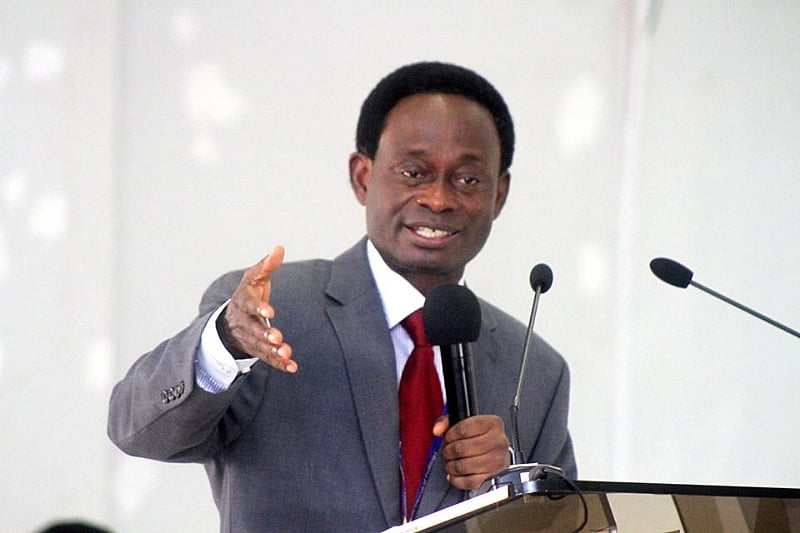Apostle Professor Opoku Nyinah, the former Chairman of the Pentecost Church of Ghana, has issued a critical warning to pastors and prophets in Ghana regarding the proliferation of election-related prophecies as the nation approaches the high-stakes 2024 general elections. In a public statement on October 8, he highlighted the potential dangers of making these predictions publicly, citing them as catalysts for unrest and discord within the country. His remarks come in light of growing concerns voiced at a recent forum organized by the National Peace Council of Ghana, aimed at promoting the responsible management of prophetic messages amidst the politically charged atmosphere leading up to the elections. Apostle Nyinah emphasized that the public nature of these prophecies could tarnish the reputation of God and lead to instability within society.
During the forum, where he served as facilitator, Apostle Nyinah tackled the complex relationship between politicians and the prophetic community, addressing a prophet’s concerns over the disrespect often shown by political figures toward pastors during election seasons. The renowned clergyman pointed to a recurring issue of conflicting prophecies from various pastors, wherein one might declare a victory for a candidate from one political party while another proclaims the triumph of their opponent. This inconsistency, he argued, brings disrepute to the name of God and contributes to confusion among the populace. The notable contradictions in prophecies exacerbate tensions and contribute to the division, undermining the unity that the nation needs in this crucial electoral period.
Apostle Nyinah further examined the emergence of at least two major streams of prophecies for the upcoming elections, one favoring the New Patriotic Party (NPP) and the other backing the National Democratic Congress (NDC). He conveyed his alarm over how such prophecies cause fragmentation in national sentiment and encourage political leaders to align themselves with prophets whose predictions align with their interests. The natural inclination for politicians to gravitate toward positive proclamations about their prospects can lead to a disproportionate reliance on prophetic declarations, which creates a precarious situation for national unity. The Apostle’s insights underscore the fact that the political landscape in Ghana can become increasingly divisive when prophetic messages monopolize the discourse.
In light of the ongoing climate of contradicting prophecies, Apostle Nyinah cautioned that the ramifications could extend beyond mere division. He expressed grave concern for the aftermath of the elections, noting that the occurrence of such divergent prophecies raises the inevitable prospect of one of them failing to materialize. This failure could yield confusion and disappointment among the populace, especially if citizens had placed their faith in these prophetic messages. The implications for national stability are significant, as political factions may become embittered and disillusioned depending on how the electoral outcomes align with the anticipations set forth by their aligning prophets.
In his clarion call for unity and integrity, the former Chairman of the Pentecost Church urged his fellow clergymen to resist the temptation to make divisive public prophecies that could further fragment the nation’s already tenuous political landscape. He appealed not only to his fellow religious leaders but also to political flagbearers and citizens to focus on ethical campaigning and decision-making based on civic duty rather than the fluctuating nature of prophetic predictions. Acknowledging the potential influence of these prophecies, he stressed that it is imperative for politicians to not base their strategies solely on these declarations but to maintain integrity and ensure that their electoral campaigns are founded on sound ethical principles.
Apostle Nyinah’s advice extended to the importance of empowering citizens in their voting choices. He strongly urged Ghanaians not to place undue reliance on prophetic messages when deciding their votes in the forthcoming elections. This message calls for a shift toward a more informed decision-making process that prioritizes individual judgment over prophetic interpretations. He expressed hope that fostering a culture of critical thinking will protect the electorate from the influence of often contradictory and sometimes misleading prophecies that could lead to chaos or division within the society. In essence, his cautions aim to build a more peaceful and united Ghana, encouraging both the clergy and the general public to embrace calm and collective action as the elections draw near.














